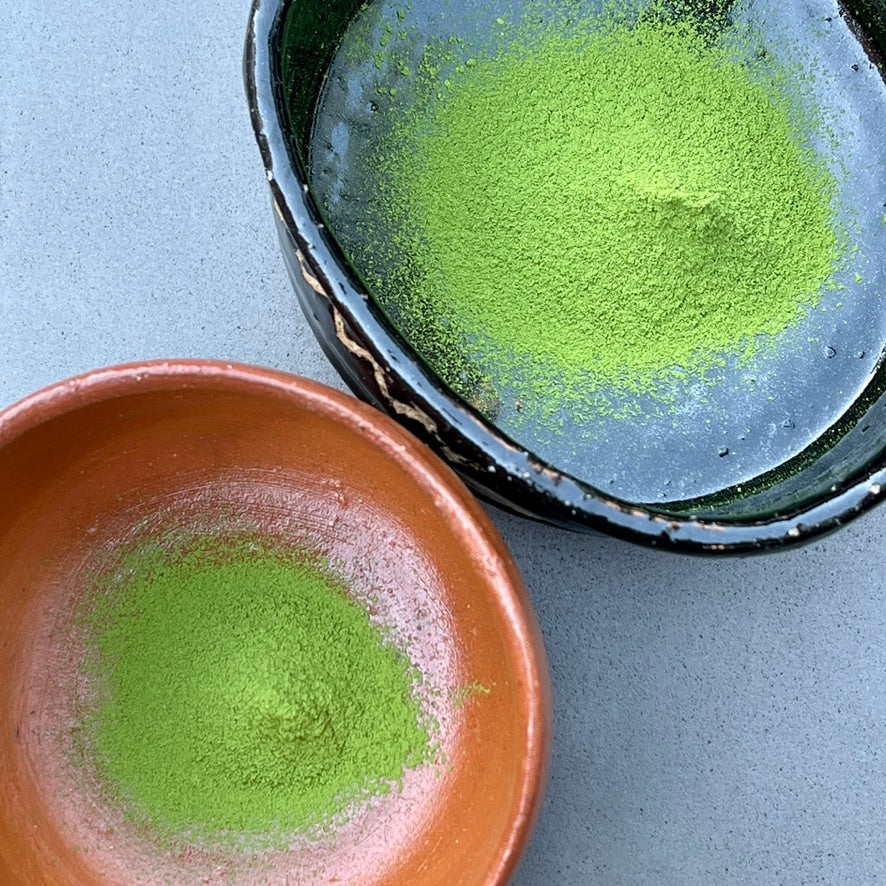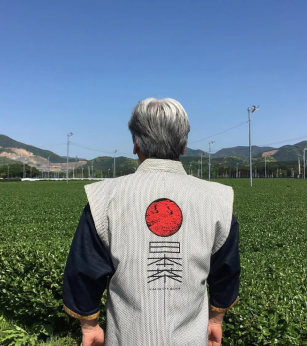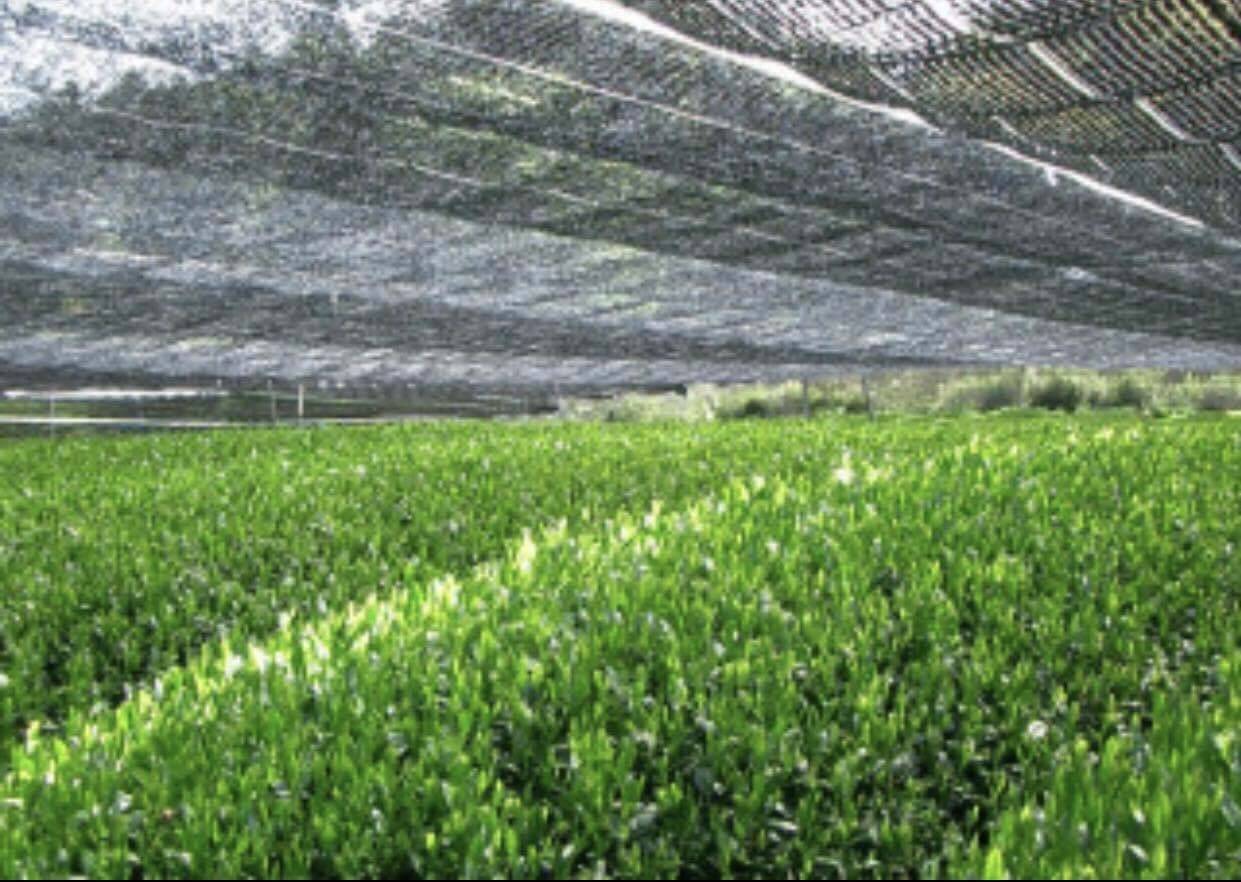
FAQs
Expert in Nippon Cha's tea product, FAQS and Support.
Your Guide to Japanese Tea Excellence

Welcome to NIPPON CHA 101, your essential resource for understanding and exploring the world of Japanese tea. Designed to educate and support both our customers and team, this guide brings together the richness of Japanese tea traditions with practical knowledge to enhance your tea experience.
01. Nippon Cha’s Matcha Overview:

- Katana: 'Usucha' (thin tea) of Chakai-grade.
- Samurai: 'Koicha' (thick tea) of Chakai-grade.
- *Hinomoto: Organic matcha used in formal tea ceremonies.
- Chitose no Tomo: 'Usucha' favored by the grand master of the Ueda tea school.
- Takihano Mukashi: 'Koicha' preferred by the grand master of the Ueda tea school.
- Chakai: 'Usucha' suitable for tea ceremonies.
- Keiko: 'Usucha' designed for tea ceremony practice.
*These selections represent the best quality, made from 100% premium *tencha*, stone-milled into the finest matcha—guaranteed by our Nippon Cha® standards.
Additional Uji Varieties:
- Uji - Original: Powdered tea made from third harvest or later (Sanbancha) leaves, mechanically milled, intended for processing purposes from the Uji tea region.
- Uji Premium: Matcha made from second harvest or later (Nibancha) leaves, mechanically milled, intended for processing purposes from the Uji tea region
* These last two (Uji and Uji Premium) are not made from first-harvest tea (Ichibancha) and, therefore, do not fall under the Nippon Cha® brand."
簡単に一言で説明をすると
- Katana⇒茶会グレードの「ウスチャ」
- Samurai⇒茶会グレードの「コイチャ」
- Hinomoto⇒茶会で使われる有機抹茶
- Chitose no tomo⇒上田流御家元御好みの「ウスチャ」
- Takihano mukashi⇒上田流御家元御好みの「コイチャ」
- Chakai⇒茶会にも使用される「ウスチャ」
- Keiko⇒茶道家の稽古に使用される「ウスチャ」
*以上が私達の日本茶®が品質を保証する、一番テンチャ100%の茶臼挽きです!
8) Uji⇒宇治茶エリアの三番茶以降を使用して機械粉砕した加工用粉末茶
9) Uji premium⇒宇治茶エリアの2番茶以降を使用して機械粉砕した加工用抹茶
*この2つは一番茶ではない為、NIPPONCHA®ブランドには該当しないので注意して下さい🙏
02. Discover the Excellence of Nippon Cha Matcha

At Nippon Cha USA, we take immense pride in offering matcha of unparalleled quality. Our Keiko Matcha, alongside our other matcha offerings, is meticulously sourced and crafted, placing it in the top 10% of all matcha produced in Japan.
Our Ichiban matcha, produced in Kyoto Prefecture, boasts the most extended history in Japan. This region's matcha cultivation and tea-making techniques have always been considered the best in the country, making our matcha an accurate representation of Japanese tea heritage and excellence.
Why Choose Nippon Cha Matcha?
- Top 10% Quality: Our matcha ranks in the highest quality tier, ensuring a superior taste and vibrant color.
- Historic and Authentic: Ichiban matcha from Kyoto, Japan's region with the wealthiest tea-making history.
- Authentic and Pure: Sourced directly from trusted farms in Kyoto, our matcha is made using traditional methods that we continue to improve.
- Versatile Use: Perfect for traditional tea ceremonies, modern beverages, and culinary creations.
- Health Benefits: Rich in antioxidants, our matcha supports mental clarity, sustained energy, and overall wellness.
Join us in celebrating the essence of Japanese tea with Nippon Cha’s premium matcha. Elevate your tea experience and share the delight of top-tier matcha with friends, family, and customers across America.
03. Understanding Caffeine: A Comparison Across Popular Beverages and the Health Benefits of Matcha
In today’s fast-paced world, caffeine plays a key role in many beverages, providing the energy we need to kick-start our day or keep going through the night. While coffee remains the go-to for many, there’s a growing interest in alternatives like matcha, which offers more than just an energy boost. Let’s explore the caffeine content across popular sources and the unique health benefits of matcha.
1. Caffeine Content Comparison
- Coffee: A typical 8-ounce (240 ml) cup contains around 95 mg of caffeine. However, this can vary depending on the bean, roast, and brewing method. Espresso-based drinks may contain more, while lighter or decaffeinated coffees have less.
- Matcha: A finely ground powder made from specially grown and processed green tea leaves, it has a higher caffeine content than regular green tea. One gram of matcha provides approximately 35 mg of caffeine. A standard cup of matcha (using 2 grams of powder) contains about 70 mg, slightly less than coffee.
2. Different Caffeine Release Patterns
- Coffee: The caffeine in coffee is absorbed quickly, providing an immediate energy boost. This can lead to a rapid spike in energy followed by a "crash" once the caffeine wears off, often leaving you feeling tired or drained. Coffee’s fast action can also sometimes cause anxiety or an increased heart rate.
- Matcha: The caffeine in matcha is released gradually due to L-theanine, an amino acid that promotes calmness while enhancing alertness. This combination leads to a smoother, more sustained energy release without the "crash" often associated with coffee. Matcha drinkers experience a more balanced, long-lasting state of focus and calm.
3. Health Benefits
- Coffee: Rich in antioxidants, coffee can help boost metabolism, improve heart health, and reduce the risk of diseases like type 2 diabetes and Parkinson’s disease. However, excessive consumption can lead to side effects such as anxiety, insomnia, or digestive issues, especially for those sensitive to caffeine.
- Matcha: Matcha is packed with antioxidants, particularly catechins (EGCG), known for their cancer-fighting properties and ability to lower cholesterol and support heart health. The chlorophyll in matcha helps detoxify the body and reduce inflammation. Thanks to L-theanine, matcha also promotes relaxation and focus, making it an excellent choice for those who want to stay energized without feeling jittery.
4. Summary
- Coffee: May be the right choice if you need a quick energy boost, especially in the morning.
- Matcha: If you’re seeking a smooth, sustained energy lift with calm focus throughout the day, matcha may be your better option.
Both matcha and coffee offer unique benefits. Choosing between them depends on your personal needs and caffeine tolerance. Feel free to enjoy both based on your energy requirements and the occasion!
04. How to Store Matcha?
Storing matcha properly is crucial to maintain its quality and freshness. Here are some guidelines based on the knowledge from Nippon Cha:
1. Keep Away from Light and Heat: Store matcha in a cool, dark place. Exposure to light and heat can degrade the quality of matcha, affecting its color and flavor.
2. Airtight Container: Use an airtight container to store matcha. Oxygen can also degrade matcha, so minimizing its exposure to air is important. Traditional matcha containers, known as "natsume" for thin tea or "chaki" for thick tea, are ideal, but any airtight container will do.
3. Avoid Moisture: Make sure the storage area is dry. Moisture can lead to clumping and potentially cause mold to form in the matcha powder.
4. Refrigeration: For long-term storage, matcha can be refrigerated. However, it should be placed in an airtight container to prevent it from absorbing odors from other foods. When you take it out of the refrigerator, let it come to room temperature before opening the container to prevent condensation.
5. Use Quickly After Opening: Once opened, try to use matcha within a few weeks for optimal freshness and quality. Over time, even with proper storage, matcha will gradually lose its vibrant color and rich flavor.
6. Avoid Cross-Contamination: Always use a clean, dry scoop or spoon to measure your matcha. This prevents any moisture or contaminants from entering the main supply.
By following these storage practices, you can help ensure that your matcha retains its distinctive taste and health benefits.
05. What is Matcha?
A long standing tradition of Japanese Culture, and the focal point of the Japanese Tea Ceremony, Matcha Green Tea is the highest quality green tea powder made with stone mills. Unique to Japan, and made from the nutrient rich young leaves picked from the the tips of shade-grown camellia sinesis plants, Matcha Green Tea is steamed, stemmed and de-vined before being stone-ground into a very fine powder.
Where does Matcha Green Tea come from?

Matcha is premium green tea powder from Japan used for drinking as tea or as an ingredient in recipes. While other green teas are grown throughout the world, matcha is unique to Japan. It is the heart of the Japanese way of tea and has been celebrated in the traditional Japanese tea ceremony for hundreds of years.
How is Matcha made?
Ceremonial grade matcha is grown under a shade cloth as leaves reach maturity, as direct sunlight promotes bitter tannins in the leaves. The leaves are picked by hand and steamed for 15 seconds immediately after harvesting. The leaves are then immediately dried for many hours. The tea leaves are de-stemmed by and chopped into ‘aracha’. The leaves are then de-stemmed again and de-veined (the veins in the leaves are removed).
Now, this is called tencha. Tencha is then ground by a stone mill into matcha. Matcha used for chanoyu, the Japanese tea ceremony must be made into powder by a stone mill and use only tea leaves from the first harvest of the season.
Organic or Not?
The question is, is organic matcha better than non-organic matcha? While "organic" does have real meaning and environmental value, it is not focused primarily on the quality of the tea and does not come with guarantees.
In today’s huge global marketplace, there are lots of cheap organic Matcha products from China and expensive ones from Japan. It is well known in the matcha community that the color, flavor and price are much better for non-organic matchas. And Although Nippon Cha does produce and sell organic matcha, we have found that our customers have long favored the taste, color and overall experience of our traditional, non-organic matchas. It should be noted that only organic fertilizers are used in the cultivation of all of Nippon Cha’s products. Furthermore, the residual pesticide regulation is very strict in Japan, so food products made in Japan are considered very safe.
What is the difference between Green Tea and Matcha?
Matcha, sencha, gyokuro and kabusecha are all made of green tea leaves. The difference is in the process. Matcha is made by grounding up green tea leaves. Sencha are grown in the full sun, gyokuro are shaded with a reed screen for several weeks and kabusecha are covered with a cloth placed directly on top of the plants.
How much Matcha should you drink a day?
Matcha has about 70mg of caffeine in one cup. The amount of caffeine that should be consumed in one day by the average adult is 400mg. Therefore about 5.5 cups of matcha per day is safe to drink, based on 1g servings, around ½ a teaspoon, which is enough matcha to keep you energized throughout your day.
Health Benefits
What makes Matcha so healthy?
Matcha is loaded with antioxidants as well as other needed nutrients like Vitamins A, C and E, dietary fiber, chlorophyll, and polyphenols (naturally occurring micronutrients found in plants) all of which contribute to its many health benefits.
This is because when drinking matcha green tea, you are consuming the ground up tea leaves, rather than the liquid from the brewed loose or bagged tea. Drinking matcha helps ensure you receive all the antioxidants and nutrients your body needs.One serving of matcha powder contains 1,384 ORAC units of antioxidants – more than almost any other food on the planet. Antioxidants are special nutrients that protect your body’s cells against harmful damage from free radicals. These toxins make you susceptible to inflammation, many types of disease and chronic conditions.Matcha is also rich in a powerful type of antioxidants known as catechins, which have powerful cancer-fighting properties. The most active and abundant catechin is EGCG. Among it’s many benefits, Catechins like ECEG can prevent heart disease, increase your metabolism, burn fat and has anti-aging antioxidants that protect skin and reduce inflammation.Matcha also contains a healthy dose of the amino acid L-Theanine, known to improve learning and memory, enhances your resilience to stress, improves the sleep quality of people with ADHD and can even help smokers stop smoking. When caffeine and L-Theanine are consumed together, they produce a sustainable source of energy that lasts 4-6 hours, along with a calm-yet-alert state of mind, without the jitters or crash of coffee. This is why matcha was the favored beverage of the samurai and Zen Buddhist monks alike.
What are some health benefits of Green Tea?
- Reduce the risk of cancer: A study published in the American Journal of Clinical Nutrition found that women who regularly drank green tea had a lower risk of colon, stomach and throat cancer. Other studies have shown an associated decrease in prostate cancer and found a link suggesting green tea may slow down the growth of tumors in breast cancer patients.
- Weight loss: Approximately 2 cups of green tea will speed up your metabolism by nearly 5% in a 24 hour period. This isn’t a miracle diet solution, but definitely a plus.Immunity: Green tea may help you fight off illness by altering the makeup of intestinal bacteria. Findings suggest that green tea can also reduce allergic responses and asthma.
- Diabetes: Not only does green tea help improve insulin sensitivity in type 2 diabetics, but one study found that drinking more than six cups of green tea per day slashed the risk of developing type 2 diabetes by 33%.
- Oral health: Green tea strengthens your teeth, thus decreasing your risk of cavities. Its antibacterial properties thwart the effects of the bacteria most responsible for gum disease. And it may even help ward off bad breath!Liver health: Green tea prevented liver damage in rats who were kept drunk on alcohol for 4 straight weeks. It also destroys free radicals in people with fatty liver disease.
- Skin health: German researchers found that drinking six cups of green tea per day can help your skin be more resistant to sunburn. Some studies even suggest that components of green tea can help prevent skin cancer when applied directly to the skin.
- Alzheimer’s prevention: Although there is no known cure for Alzheimer’s disease, numerous studies suggest that green tea may effectively help to prevent the disease. A compound in green tea reduces the formation of plaque-like deposits in the brain, which are often indicative of Alzheimer’s disease.
- Relax: Green tea increases the production of alpha brain waves to calm the body.
What are some health benefits of Black Tea?
- 1. Boosts Heart Health: The properties of black have been found to improve heart health. Scientists have confirmed that drinking more than or equal to 3 cups of black tea per day can reduce the risk of coronary heart disease and can help repair coronary artery dysfunctions in many heart patients. Increasing evidence hints that the antioxidants in black tea may reduce atherosclerosis (clogged arteries), especially in women. It may also help lower the risk of heart attack and cardiovascular disease.
- 2. Lowers Ovarian Cancer Risk: Like the catechins in green tea, the theaflavins in black tea can inhibit the proliferation of ovarian cancer cells. In a study conducted by researchers at Roswell Park Cancer Institute, USA, a 30% decline in ovarian cancer risk was observed in patients who drank more than two cups of black tea per day.
- 3. Lower Risk Of Diabetes: Scientists have found that drinking tea can help lower the risk of Type 2 diabetes as the catechins and theaflavins in black tea help make the body more insulin sensitive and prevents beta cell dysfunction.
- 4. Boosts Immunity: Black tea is rich in antioxidants that help scavenge the free oxygen radicals. Black tea helps flush out the oxygen radicals thereby helping to restore normal cell and body functions and boosts immunity.
- 5. Improves Bone Health: As you age, the strength of your bones starts to decline. However, scientists have observed that people who drink black tea can significantly restore bone density as black tea is a substitute for calcium. Therefore, if you are 30 or older, make black tea a part of your diet to prevent reduced bone density, osteoporosis, and risk of fractures in the near future (14),(15).
- 6. Reduces Parkinson’s Risk: Research suggests that the tea polyphenols have a neuroprotective effect on the brain. In a research conducted at the National University of Singapore, scientists found that the caffeine in black tea is inversely associated with Parkinson’s disease (16),(17).
- 7. Improves Digestion / Healthy Digestive Tract: A healthy gut can shield you from various diseases and disorders. Black tea is rich in abundant tannins and other chemicals that have a positive and relaxing effect on the digestive system of human body. This anti-inflammatory quality of black tea is also helpful for curing digestive disorders. Black tea can also help reduce stomach ulcers and colorectal, esophageal/stomach cancers (18),(19).
- 8. Lowers cholesterol: Unhealthy lifestyle and food habits can increase the bad cholesterol levels in the blood. High LDL cholesterol (bad cholesterol) can lead to plaque buildup in the arterial walls thereby limiting the blood flow leading to heart attack, stroke, ischemic attack, etc. In one study, black tea was shown to reduce 11.1% LDL cholesterol. Japanese researchers found that Chinese black tea has anti-hyper-cholesterolemic effect in humans who were obese and prone to heart disease (20),(21).
- 9. Aids Weight Loss: Obesity is the root cause of various diseases such as diabetes, heart disease, PCODs, high cholesterol etc. Like green tea, black tea too can help you lose weight if consumed along with a few lifestyle changes. Scientists from David Geffen School of Medicine, California, USA found that black tea helped reduce visceral fat by reducing inflammation inducing genes. Since a prolonged period of inflammation in the body can induce obesity, by drinking black tea you can prevent inflammation-induced obesity. Moreover, black tea lowers the triglyceride levels (22),(23).
- 10. Relieves Asthma: Asthma is caused due to inflammation and swelling of the airway or bronchial tubes, which makes inhaling and exhaling difficult. Few studies have also proved that caffeine present in teas can help lung function (25). Moreover, the flavonoids present in tea is also found to have a beneficial effect on people who have asthma (26).
- 11. Eliminates Free Radicals: Free oxygen radicals are produced due to metabolism or external influence such as pollution, smoking, etc., which leads to an overload of these free radicals. These free oxygen radicals are toxic for the body. And the main function of antioxidants is to scavenge these harmful radicals. Black tea is loaded with antioxidants and helps flush out these toxic molecules (27). Black tea with lemon is a good choice for this action.
- 12. Kills Bacteria: Scientists have confirmed that the antioxidants and other phytonutrients found in black tea possess antibacterial properties. In fact, a study published that teas can even act against anthrax (28),(29).
- 13. Relieves Stress: According to a study conducted by University College London, tea can reduce stress hormones in the body and relaxes the nerves (30). Have a cup of black tea instead of smoking tobacco or reaching out for a sweet (for sugar rush) to relieve stress.
- 14. Oral Health: Consuming black tea can also help protect against dental plaque, cavities, and tooth decay and freshen your breath (32). Black tea possesses antibacterial and antioxidant properties that prevent staphylococcus infections (33). Plus, the fluoride present in black tea inhibits dental caries (34). Moreover, Indian scientists have also reported that black tea can help prevent oral leukoplakia in patients with oral carcinoma (35).
- 15. Improves Mental Alertness: Researchers from The Netherlands found that participants of a study who drank black tea had the strongest attention span and better auditory and visual attention (36). L-theanine present in teas is said to modulate brain functions and human attention process (37).
- 16. Treats Diarrhea: Yes, drinking black tea can help treat diarrhea. Diets that include black tea can decrease diarrheal prevalence by 20% (38). So, the next time you have an upset stomach, you may consider consuming a cup of black tea for relief and to soothe your digestive system.
- 17. Reduces Blood Pressure: Consuming black tea can help reduce blood pressure. Scientists from The Netherlands, Germany, UK, and Italy conducted an experiment that confirmed that participants who consumed black tea had lower blood pressure as compared to the control group (39).
- 18. Reduces Cholesterol: According to a study conducted by the American Heart Association in New Orleans, people who consume black tea can reduce their bad cholesterol levels, which are responsible for heart strokes and fatal attacks. It has also been found that people who drink 3 to 4 cups of black tea every day are at a lower risk for heart problems than those who consume minimal amounts or no tea at all.
- 19. Happiness Factor: Black tea can help reduce LDL cholesterol, blood pressure, reduce the risk of cancer, relieve stress, etc. This means that drinking black tea can improve your happiness quotient by a hundredfold. So, drink black tea for an overall improvement of your health and mood.
- 20. Prevents Skin Infections: Tea catechins and flavonoids can help prevent skin infections. Therefore, if you frequently suffer from skin infections, apart from taking medicines, you may also drink black tea to expedite the healing process (40).
- 21. Reduces Eye Puffiness: Under eye puffiness is a serious concern for women and men. It can make you look tired and can make you prone to premature wrinkling. Try using black tea bags or just dip cotton in cold black tea and keep it under your eye for 20 minutes every day. You can see a visible reduction in under eye puffiness in just a few weeks.
- 22. Prevents Premature Aging: The antioxidants and polyphenols present in tea can protect your skin from premature aging and wrinkle formation. In a study conducted on hairless lab mouse, scientists found that black tea reduced the expression of the gene that creates a collagen degrading enzyme. Moreover, black tea was a more effective anti-wrinkle agent as compared to other teas (41).
Health Benefits of Tochucha
- Reducing Blood Pressure
- Lowering Blood Glucose Levels
- Reducing the Amount of Toxins Absorbed into the Body
- Promoting Fat Reduction of the Internal Organs
- Cleansing of the Kidneys and LiverReduction of Fatigue
- Fat Reduction of the Internal Organs
- Weight Loss
- Overall Cleansing
- Effect on the BodyEffects on the Body
- Antioxidant
- Anti-Inflammatory
- Anti-Allergic
- Anti-Microbial
- Anti-Cancer
- Anti-Aging
- Cardio-Protective
- Neuro-Protective
- Lower Risk of Obesity While Detoxing Your Body
- Eucommia tea (our Setochi Tochucha Tea) is said to help cut back cholesterol and triglyceride levels in your blood stream. Studies have shown that this can help prevent the rise in body weight and fat that causes obesity. In addition to working as a great method in weight maintenance, this tea helps flush out bodily waste products and harmful toxins having a detoxification effect on your body. Drinking Setochi Tochucha tea daily is an easy way to lower your cholesterol and naturally detox your body.
- Used to Treat*Eucommia tea has been widely used solely or in combination with other compounds to treat cardiovascular and cerebrovascular diseases, sexual dysfunction, cancer, metabolic syndrome, and neurological diseases.
Studied Research Sources:
Studies Cited Sasaki, Y.F., Chiba A., Muram M., et al (1996) Mutat Res. 371 (3-4):203-214Lee, M.K., Kim, M.J., et al Diabetes Residential Clinical Practice (2005) 67(1):22-28Kwan, C.Y., Chen C.X., Deyam T., and Nishibe F., (2003) Vascular Pharmocol 40 (5) 229-235Tarique Hussain, Bi’e Tan, Gang Liu, et al., “Health-Promoting Properties of Eucommia ulmoides: A Review,” Evidence-Based Complementary and Alternative Medicine, vol. 2016, Article ID 5202908, 9 pages, 2016. doi:10.1155/2016/5202908
Disclaimer.
*Statements made, or products sold through this web site, have not been evaluated by the Food and Drug Administration. They are not intended to diagnose, treat, cure, or prevent any disease.
